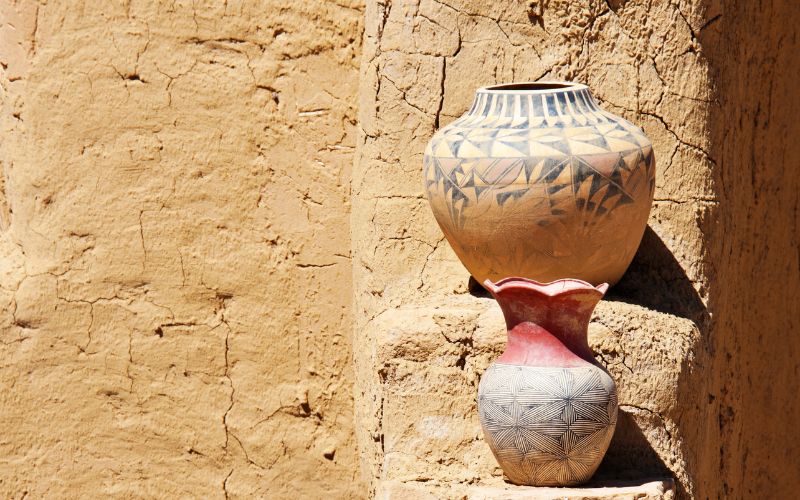
- Details
- By Native News Online Staff
The National Park Service (NPS) has allocated $3 million in grants to support the consultation, documentation, and repatriation of Native American ancestral remains and cultural items. These grants, awarded to 13 Tribes and 21 museums, are part of the ongoing efforts under the Native American Graves Protection and Repatriation Act (NAGPRA).
Enacted in 1990, NAGPRA mandates that museums and federal agencies inventory and identify Native American human remains and cultural objects in their collections. The law also requires consultation with Indian Tribes and Native Hawaiian Organizations to ensure the respectful return of these items. The NPS, which is responsible for administering NAGPRA, facilitates the awarding of these grants.
Chuck Sams, Director of the NPS, emphasized the significance of these efforts: “The National Park Service is committed to supporting these important efforts to reconnect and return the remains of Tribal ancestors and other cultural resources to the communities they belong to. These grants help ensure Native American cultural heritage isn’t kept in storage, cast aside, or forgotten.”
The NPS awarded five Repatriation Grants to two Tribes and three museums to fund the return of human remains and cultural items. These grants will facilitate the transportation and reburial of 137 ancestors, 12 funerary objects, and 54 cultural items. The Chickasaw Nation is one of the grant recipients and will use the funds to support its reburial team in repatriating 130 ancestors from the Tennessee Valley Authority in Alabama. The team will travel from Ada, Oklahoma, to Moundville, Alabama, to complete this mission, with additional repatriations planned if feasible.
The recipients of the FY 2024 NAGPRA Repatriation Grants include:
- Galena Village (AK): $24,387
- Colorado Seminary (CO): $6,509
- Vassar College (NY): $10,010
- Hartwick College (NY): $15,810
- Chickasaw Nation (OK): $15,155
In addition to repatriation, the NPS awarded 34 grants to 11 Tribes and 19 museums for consultation and documentation projects. These grants will fund staff travel, consultation meetings, and research, all of which are critical to the repatriation process.
One notable grant recipient is the Forest County Potawatomi Community (FCPC) of Wisconsin. The FCPC will use the funding to seek the return of ancestral remains, funerary objects, and culturally significant items. The Tribe will collaborate with several museums, including the Detroit Institute of Arts and the Wisconsin Historical Society, to begin cataloging these items for potential repatriation.
The FY 2024 NAGPRA Consultation/Documentation Grant recipients include:
- Central Council Tlingit and Haida Indian Tribes of Alaska (AK): $98,729
- Kenaitze Indian Tribe (AK): $99,619
- University of South Alabama (AL): $97,545
- Los Angeles County Museum of Natural History Foundation (CA): $87,867
- University of Wisconsin System (WI): $196,774 (two grants)
The total funding for consultation and documentation projects is $2,969,249.
More Stories Like This
50 Years of Self-Determination: How a Landmark Act Empowered Tribal Sovereignty and Transformed Federal-Tribal RelationsThe Shinnecock Nation Fights State of New York Over Signs and Sovereignty
Navajo Nation Council Members Attend 2025 Diné Action Plan Winter Gathering
Ute Tribe Files Federal Lawsuit Challenging Colorado Parks legislation
NCAI Resolution Condemns “Alligator Alcatraz”
Help us defend tribal sovereignty.
At Native News Online, our mission is rooted in telling the stories that strengthen sovereignty and uplift Indigenous voices — not just at year’s end, but every single day.
Because of your generosity last year, we were able to keep our reporters on the ground in tribal communities, at national gatherings and in the halls of Congress — covering the issues that matter most to Indian Country: sovereignty, culture, education, health and economic opportunity.
That support sustained us through a tough year in 2025. Now, as we look to the year ahead, we need your help right now to ensure warrior journalism remains strong — reporting that defends tribal sovereignty, amplifies Native truth, and holds power accountable.
 The stakes couldn't be higher. Your support keeps Native voices heard, Native stories told and Native sovereignty defended.
The stakes couldn't be higher. Your support keeps Native voices heard, Native stories told and Native sovereignty defended.
Stand with Warrior Journalism today.
Levi Rickert (Potawatomi), Editor & Publisher


